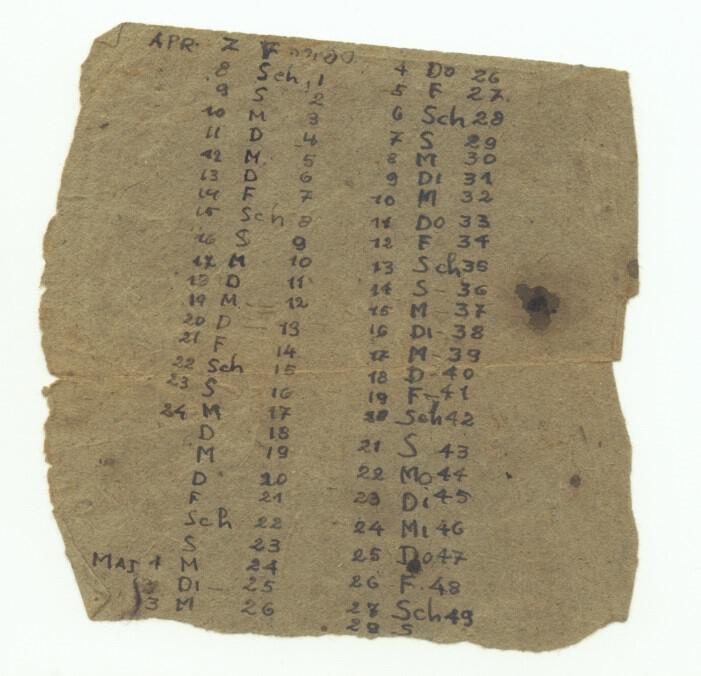
Bentzion and Frieda Moshkovitz lived in Pressburg, Czechoslovakia. He made his living as a jeweler and a cantor.
In 1939, a cantorial position opened at the Ashkenazi synagogue in Amsterdam, and Bentzion Moshkovitz received the job. The Moshkovitz family, along with their three children, arrived in Holland a week before the outbreak of the war in Poland.
In 1942, the Moshkovitzses were sent to the Westerbork transit camp, where they were separated. Bentzion was deported to the Buchenwald concentration camp, while the rest of the family was deported to the Ravensbruck camp. For several months, the family members in Ravensbruck received postcards from their father and husband, who told them about his life in Buchenwald. Bentzion even handwrote the prayers for the High Holidays and attached a calendar he wrote for counting the omer.
Frieda and the three children survived and were liberated from Bergen-Belsen. Following liberation, she decided to return to Holland.
“We flew in a military plane to Holland and landed in Eindhoven,” told Uriel Moshkovitz in his testimony for Ganzach Kiddush Hashem. “A man from the Red Cross asked our names and when my mother told him the last name, he commented that only three hours prior, a man with the same last name arrived. ‘What was his first name?” my mother asked. The man leafed through his lists and said ‘Bentzion.’ This was our father.”
“It is impossible to describe the intense emotions at the meeting with our father, in which the hand of Providence brought him and us to the same place at the same time. My father told us that he had been part of the death march from Buchenwald to Theresienstadt and that of the 5000 people who started the march, only 900 remained at the end of the march.”
After the war, Bentzion Moshkovitz was the chief cantor of the Great Synagogue in Amsterdam.
(The documents were graciously donated to Ganzach Kiddush Hashem by Uriel Moshkovitz)














